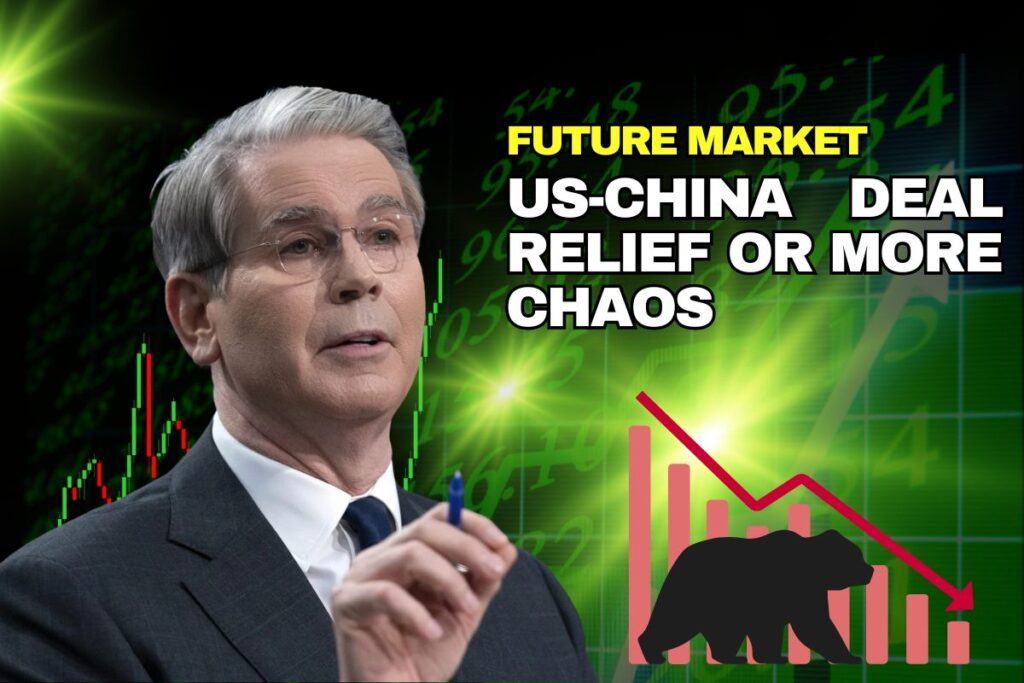

This past weekend, the world watched as Treasury Secretary Scott Bessent and other U.S. officials sat across the table from Chinese delegates in Switzerland. The stakes were enormous: two titans of the economy engaged in a battle that has strained global supply chains, agitated markets, and left small businesses and regular consumers struggling with price increases. The world was left wondering what would happen after the United States and China declared “substantial progress” without providing any specifics.
An Overview of A Battle of Giants
Two opposing worldviews are at odds in the trade dispute between the US and China, which goes beyond tariffs and trade balances. For the US, this means preserving its economic hegemony worldwide, preventing unfair practices, and safeguarding intellectual property. China wants to assert its position as a global economic powerhouse and fight back against what it perceives to be pressure from the United States.
The conflict has significantly intensified in recent years. The United States imposed a 145% tariff on Chinese goods during the Trump administration. In response, China imposed export restrictions on vital raw materials like rare earths and imposed a 125% tariff on US goods. Businesses have suffered, jobs have been lost, and markets have been volatile in both economies.
Are the Swiss Talks a Sign of Hope or Just a Temporary Break?
The negotiations in Switzerland last weekend were meant to be a watershed. U.S. Trade Representative Jamieson Greer stated that the differences between the two sides were “perhaps not so large as maybe thought,” while Treasury Secretary Scott Bessent spoke of “substantial progress.” However, the absence of details made analysts doubtful. Was this a real turning point or merely a stopgap measure before more fighting broke out?
The stock markets responded rapidly. The Nasdaq increased by 1.55%, the S&P 500 by 1.2%, and the Dow Jones by 0.9%. Although investors appear optimistic, hope is brittle in erratic markets. Despite being at important buying points, major stocks like Tesla, Palantir, and Alibaba are also vulnerable to the risks associated with trade between the United States and China.
Behind the Scenes political calculations
It is evident that the U.S.-China trade war is a highly political dispute rather than merely an economic one. Even as it looks for diplomatic solutions, the Biden administration in the US has remained firm on China. The impact of former President Donald Trump is still evident, as his aggressive tariff policy is still in place.
President Xi Jinping of China has established himself as a leader who will resist pressure from the United States. Despite their apparent fruitfulness, the Swiss negotiations serve as a reminder that both countries are playing a long game.
What Does the Future Markets Hold?
Where do we go from here, then? A few scenarios could occur:
- A Temporary Truce: The best-case scenario is that the United States and China will sign a formal agreement following the Swiss negotiations that lowers tariffs, reopens trade and creates a dispute resolution framework.
- A Tactical Pause: If no significant agreement is reached, the two parties may keep discussing. It’s possible that tariffs will stay in effect and that businesses will continue to face uncertainty.
- A Return to Conflict: Should negotiations fail, China may tighten its own regulations and the United States may raise tariffs even more. Another round of market volatility would result from this.
How Will This Affect You in the Real World?
The future of U.S.-China trade negotiations is more than just a political headline for average consumers; it also affects their ability to pay at the register. If tariffs persist, the cost of groceries, cars, clothes, and electronics may increase. Relying on Chinese suppliers can make it difficult for small businesses to remain profitable. Farmers might no longer have access to important markets.
Investors may experience more market fluctuations as a result of the uncertainty. Businesses that are impacted by U.S.-China relations include Apple, Tesla, Walmart, and even small-cap tech stocks. A sell-off might result from a breakdown, but a breakthrough might spark a rally.
However, this conflict is about a changing global order, not just economics. The world is watching as China gains power and the United States maintains its position as the world’s dominant nation. The Swiss negotiations were only one part of a much longer story.
Who Is Affected by an Emotional Hook?
Who ultimately bears the consequences of this trade war is the true question. The middle-class family is having trouble paying for groceries. The Iowa farmer is the one who is unable to sell his soybeans. Shenzhen factory workers are being laid off. The small business owner is attempting to maintain low prices in the face of growing import expenses.
These are narratives rather than merely statistics. Actual people caught in the middle of a geopolitical conflict.
Conclusion: A Turning Point of Market Futures
The trade dispute between the United States and China is far from resolved. It remains to be seen if the Swiss negotiations result in peace or merely postpone another conflict. The world, however, holds its breath for the moment.
